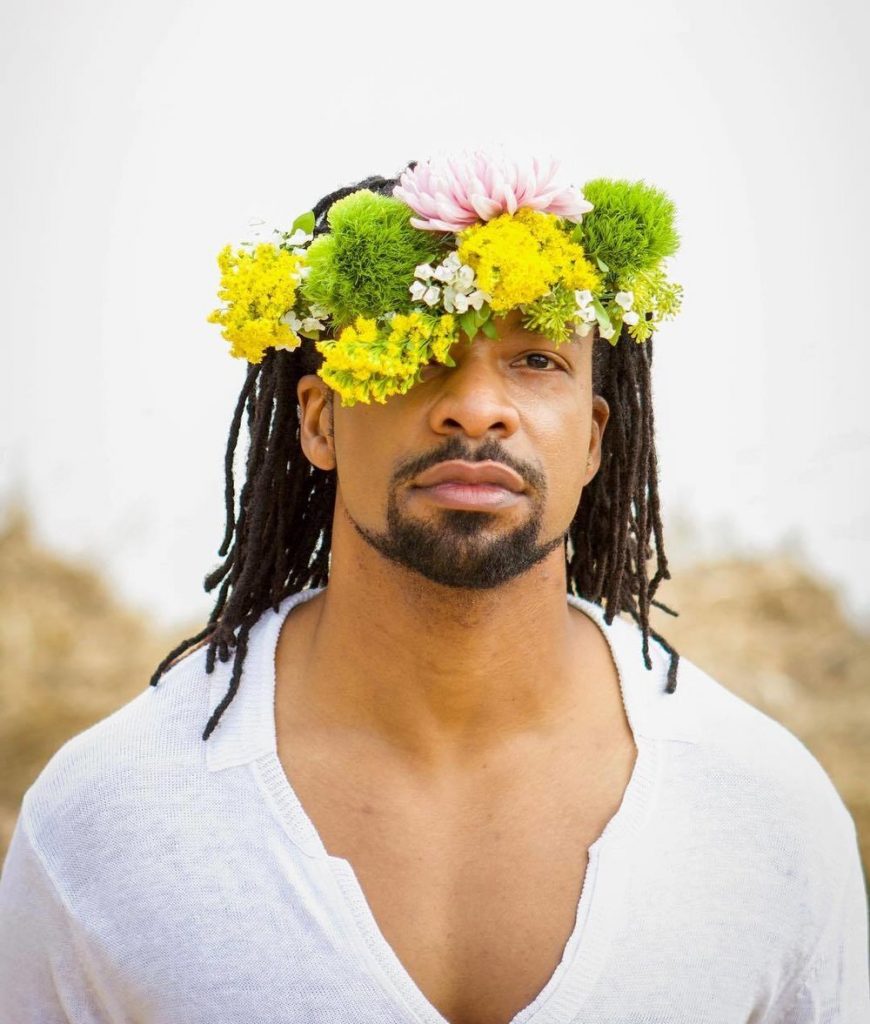On Thursday, the Binghamton Center for Writers hosted a virtual reading with poet Jericho Brown as part of its Distinguished Writers Series. The virtual series, which was presented this past week by Thomas Glave, a professor of English, and Tina Chang, director of the creative writing department and an associate professor of English, brings nationally and internationally recognized writers to the Binghamton University community.
Brown, a Winship distinguished research professor of creative writing and director of the creative writing program at Emory University, shared a number of poems from his recent Pulitzer Prize-winning book, “The Tradition.” He has also published a number of other poetry collections, such as “Please” and “The New Testament.” Before focusing exclusively on writing poetry, Brown worked as a speechwriter for the mayor of New Orleans.
“The Tradition” explores a range of themes and societal issues, challenging why society has become accustomed to terror. Brown began by reading a number of poems from the book, followed by a question and answer session directed by Chang. When asked about the title of his work, Brown referenced his answer in a recent interview, saying that it gestured toward the sonnet tradition, the tradition of racial injustices in this country, traditions of Blackness, Black poetry, queerness, whiteness, Western mythology and education.
“I would add to that the tradition of rape and rape culture, which [is] very deep,” Brown said. “I mean to this day, it’s even hard to talk about rape. We say someone ‘got raped,’ as if they went shopping for it. Our language is actually helping it happen.”
Brown also emphasized how his persistent questioning of the status quo and of his own personal identity translated into the creation of his book.
“For me, it really was ‘why do I speak this way when I speak about my body, about myself,” Brown said. “Why do I believe these things I believe about God, about my nation? I was really asking these questions of myself, and I wanted to really interrogate those questions. I wanted to show those questions in those poems.”
Brown explained the various literary references that were incorporated into “The Tradition.” While introducing the poems “Hero” and “Ganymede,” Brown discussed paying homage to Greek mythology through referencing “The Odyssey” as well as Southern identity through phrases distinct to living in the South in “’N’em,” which translates to “and them.” His inspiration for works in his anthology differed from police brutality in “Bullet Points” to COVID-19 and its impact on essential workers in “Say Thank You Say I’m Sorry.”
Brown also noted the influence of other people’s art on the production of his own work. Movies such as “Moonlight” and books like “Citizen: An American Lyric” by Claudia Rankine were an expression of life that inspired him to revise and finish his poems.
“Sometimes you have the work already there, but the experience that you need hasn’t come to meet the work that you have,” Brown said. “You just have to live, and live as fully as possible.”
One form that is distinct to “The Tradition” is the “duplex.” Brown described the self-invented literary style as a ghazal, a sonnet and the blues combined. He spoke about the significance of the duplex to his own identity.
“I wanted to invent a form that was like the body I feel like I walk around in,” Brown said. “I’m often called to the mat about identity … people want me to be 66.6 percent Black, and 17 percent queer, and 2 percent Southern. I think that I am everything that I am, whole. I wanted to create a form that had all of these forms that I have some sort of a relationship to.”
When asked about overcoming doubt as a highly regarded literary figure, Brown expressed that he struggles just like everybody else.
“The most recent time that I felt doubt is today,” Brown said. “I’m feeling a lot of doubt all the time recently because I haven’t written a poem that I like in a very long time. I’m a person who chiefly identifies as a poet. So if I don’t have a poem, am I a person? This is the kind of thing I say to myself, but I’m part of the poetry community enough to know that how I feel is the same way that [other poets] feel.”
Brown elaborated by discussing the importance of loving whatever you are doing to overcome any doubt.
“So my doubts, while I have them, I am welcome to them,” Brown said. “But they’re not as large as my passions. And I’m doing what I really love to do … even on the days I don’t feel like I’m good at it, it’s the only thing I want. I can have all the doubts that I want but it doesn’t make the identity go away.”
The virtual reading concluded with Brown sharing some of his love poems, as well as his recent favorite, “The Bride” by Christine Garren. Professor Chang noted that as much as Brown examines pain in his book, he also writes about love.
“I think all [of my] poems are love poems,” Brown said.



